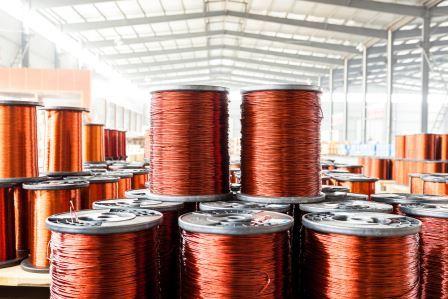The global stock market has been trading in a fluid state of mind in the last 2 months. The trend has been mixed with high volatility, lacking to provide a clear direction in the coming short-term. The MSCI-World index has been trading flattish in the last 2 month with a negative bias, while the MSCI-EM is down by 4.3%. Though developed markets like the US have performed better than Asian and emerging peers. But the consistent drag of the commodities prices has started to have a questionable view on global equity.
The prices of international commodities are on a doldrum this quarter. HRC Steel is at the historic bottom range of ~700$. Even the best performing metal, copper, which is in high demand due to the focus on renewables & electronics, is down by 8% in the last 3 months. Iron ore is at a new 22 month low. And crude has collapsed to a 32-month low below 70$. They look like a clear indication of a slowdown in world demand.
The primary concern currently being highlighted is the slowdown in China’s economy. Given China’s role as the global manufacturing hub, this slowdown signals potential challenges for the global economy as well. However, many multinational corporations are actively diversifying their supply chains to other emerging markets. This strategic shift provides some optimism that the global economic slowdown may not be as severe as suggested by the recent decline in commodity prices.
Recent US data suggests a soft landing as the economy continues to flourish. The second quarter GDP expanded by 3.1% year-over-year. Projections indicate a growth rate of 2.3% for the third quarter and 1.9% for the fourth quarter. These figures are commendable, reflecting sustained growth even from a high base. In the long term, the US GDP growth rate is projected to stabilize at 1.7% year-over-year by 2025. In comparison, India’s GDP is forecasted to grow at 7% in FY25, with a long-term growth rate exceeding 6%.Considering this, the market maintains confidence and does not perceive the long-term economic growth trajectory as a significant concern for equity in the medium and long term.
The current fall in commodities seems to be led by a dual effect of a slowdown in demand and the financial system, like an increase in interest rates and a reduction in liquidity. Chinese is a big consumer of commodities for own and external demand. And central banks are attempting to reduce the balance sheet reserves to bring inflation under control.
A decline in commodity prices does not necessarily indicate a recession. In many instances, it can benefit the economy by reducing input costs and improving earnings, particularly for net importers like India. Therefore, we can infer that the decline in commodity prices is likely to benefit the economy in the long term. However, the persistent weakness observed over the past three months may have a cascading effect on the equity market in the short term, due to elevated valuations. Consequently, India has been experiencing mixed sentiment in recent months.
Generally, commodity price trends exhibit a positive correlation with the equity market, moving in tandem. However, this relationship has weakened recently and even turned inverse when commodity prices remained elevated or at trough levels for an extended period. Economic profit is adversely affected when commodity prices stay high for a prolonged duration. Conversely, economic demand weakens when commodity prices remain low for an extended time. If commodity prices continue to exhibit caution, as observed over the past three months, it will likely have a negative impact on equity in the short term.
First published in Mint









